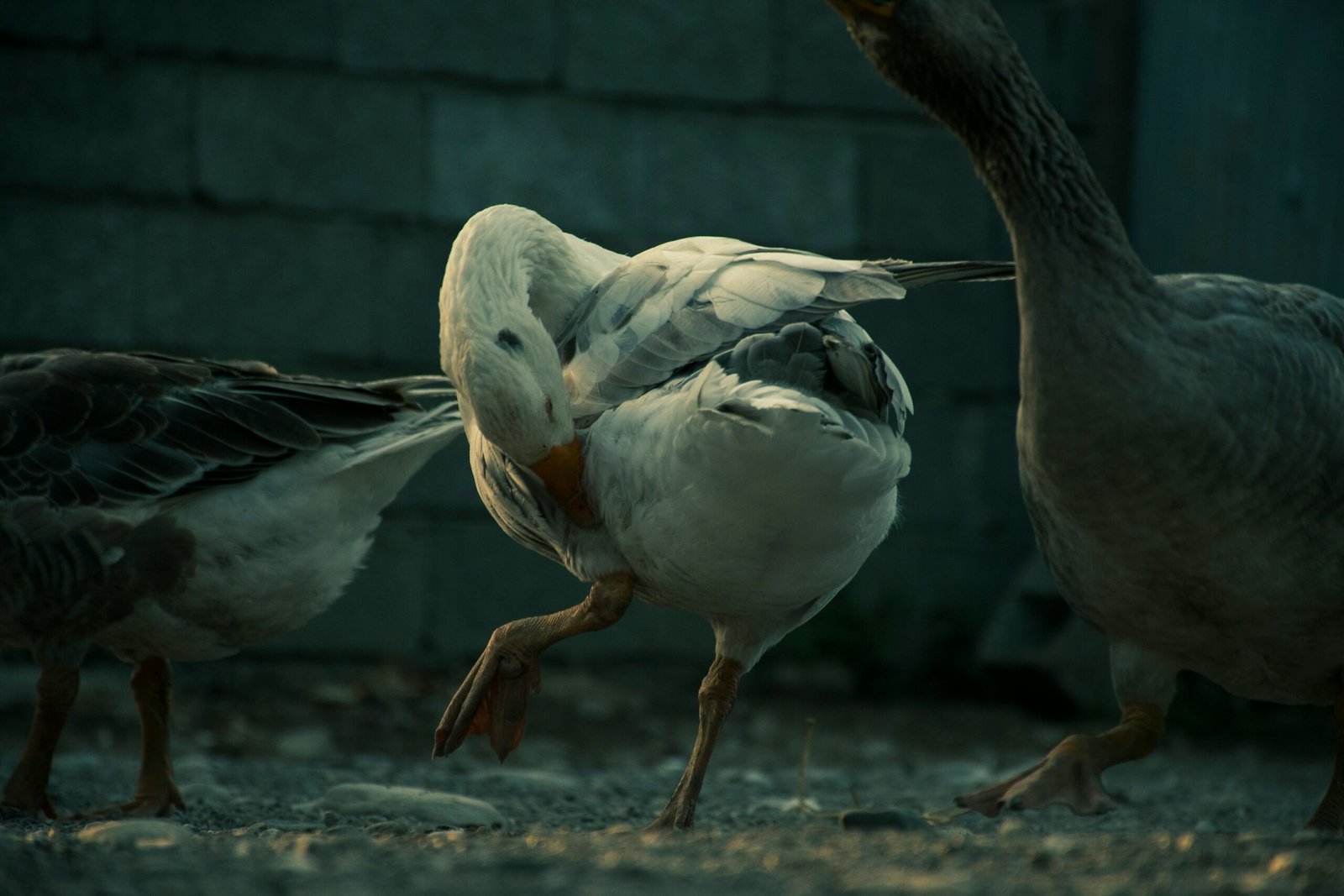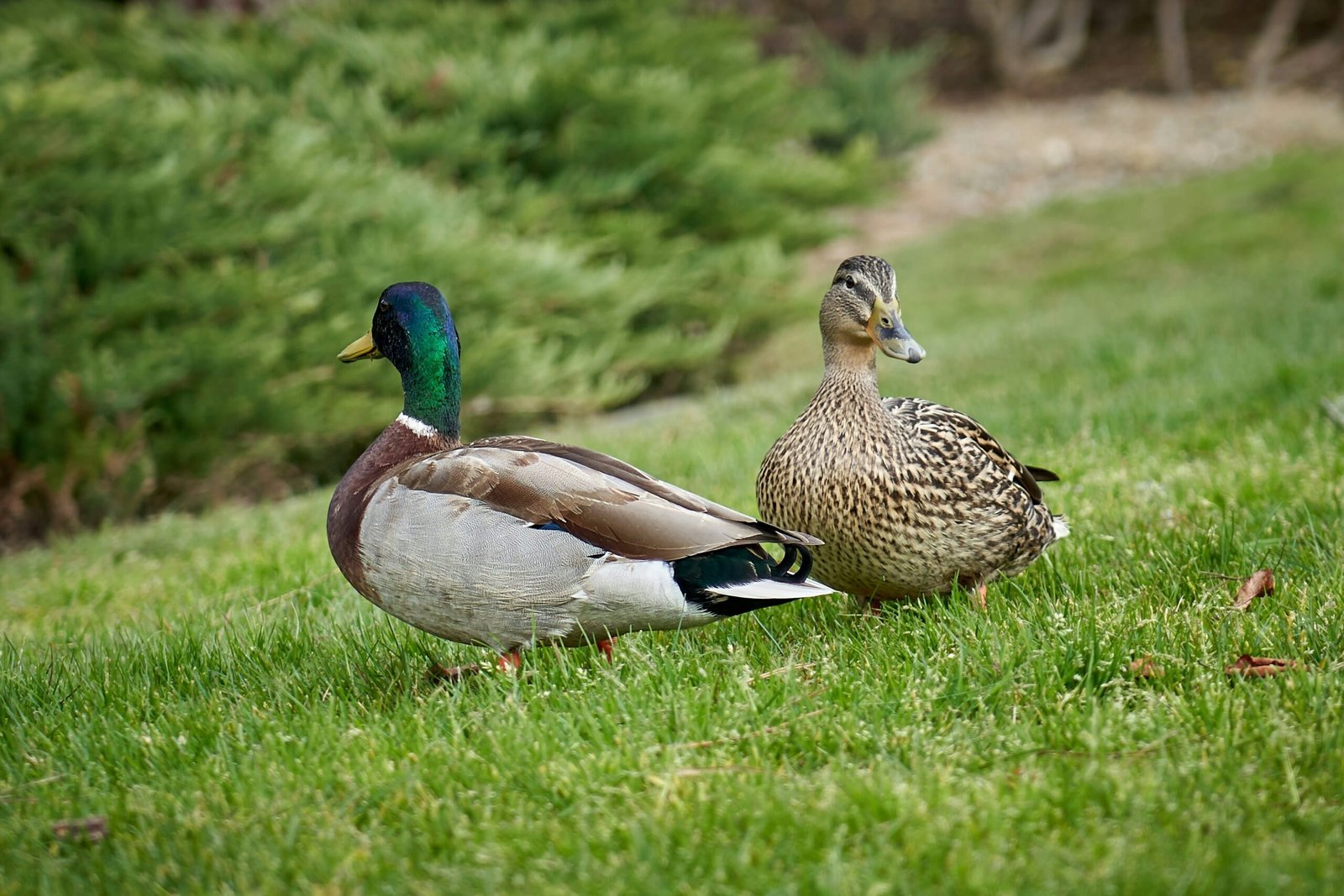Ducks, with their distinctive waddle and quack, are a familiar sight worldwide. These web-footed creatures intrigue us with their ability to glide gracefully on water and fly high in the sky. But have you ever thought about what fuels their versatile activities? The diet of a duck is as diverse as its habitat, and understanding it is key to ensuring their overall health and survival. In this article, we delve deep into the dietary habits of ducks, exploring everything from their natural diet to the impact of human feeding practices.
Natural Diet of Ducks
The natural environment of ducks is usually wetlands, including swamps, marshes, rivers, and lakes. In these habitats, they have access to a variety of food sources. Ducks are omnivorous, meaning they consume both plant-based and animal-based foods. Their diet varies greatly depending on their species, the season, and the availability of food.
A balanced diet, rich in proteins, fats, and carbohydrates, is necessary for their overall health and survival. Ducks obtain these nutrients through their natural diet, which includes plants, insects, worms, and small aquatic creatures. By consuming a diverse range of foods, ducks ensure they receive all the essential nutrients they need to thrive.
Plant-Based Foods for Ducks
Ducks are foragers, and a significant part of their diet consists of plant-based foods. They have a remarkable ability to consume a wide variety of plants, including grass, seeds, fruits, and aquatic vegetation. This is made possible by their highly efficient digestive system.
Feeding on plants not only provides ducks with vital nutrients but also aids in digestion and contributes to their overall health. Aquatic vegetation, such as duckweed and water lilies, are particularly important for ducks as they provide essential vitamins, minerals, and fiber. Consuming these plant-based foods helps ducks maintain a healthy digestive system and supports their overall well-being.
In addition to being a source of nutrition, plant-based foods also play a role in the natural behavior of ducks. Foraging for plants allows ducks to engage in their instinctive feeding patterns and helps keep them mentally stimulated.
Some common plant-based foods that ducks consume include aquatic grasses, pondweed, millet, clover, and cattails. These foods provide various nutrients and contribute to the overall diversity of a duck’s diet.
Animal-Based Foods for Ducks
Along with plant-based foods, ducks also consume a variety of animal-based foods. These usually include insects, worms, and small aquatic creatures like snails and fish. Animal-based foods are vital for ducks as they provide essential proteins and fats, crucial for their growth and survival.
Insects, such as beetles, flies, and dragonflies, are a valuable source of protein for ducks. They are also an excellent source of energy, helping ducks meet their daily caloric requirements. Worms, including earthworms and aquatic worms, are another important part of a duck’s diet. These protein-rich creatures contribute to muscle development and provide essential amino acids.
Small aquatic creatures like snails and fish are also consumed by ducks. These foods offer additional nutrients, such as omega-3 fatty acids, which are beneficial for their overall health. By incorporating animal-based foods into their diet, ducks ensure they receive a well-rounded nutritional profile.
Human Interaction and Duck Feeding
Feeding ducks in parks and public areas has long been a popular activity. However, caution must be exercised while doing so. Feeding ducks inappropriate food can have serious implications for their health, causing malnutrition and disease. Instead, it is important to provide them with suitable options that mimic their natural diet.
Ducks should not be fed bread, popcorn, or other processed foods. These items lack the necessary nutrients and can lead to various health issues. Feeding ducks a diet high in carbohydrates, such as bread, can contribute to obesity and malnutrition. It can also disrupt their natural foraging behavior, as they become dependent on human-provided food.
Instead, opt for feeding ducks grains such as corn or oats, or better yet, let them forage for natural foods themselves. Providing them with appropriate food options ensures their dietary needs are met without compromising their health.
Duck Feeding Dos and Don’ts
If you do decide to feed ducks, ensure you’re doing it responsibly. Here are a few guidelines to follow:
Dos:
- Offer seeds, grains, or leafy greens as alternatives to processed foods.
- Provide a balanced diet that includes both plant-based and animal-based foods.
- Allow ducks to forage for natural foods in their environment.
- Observe their dietary preferences and adjust accordingly.
Don’ts:
- Avoid giving them bread, popcorn, or other processed foods.
- Do not overfeed ducks, as it can lead to obesity and other health issues.
- Refrain from feeding them foods that are harmful to their digestive system.
- Never disturb their natural foraging behavior by consistently providing food.
By following these dos and don’ts, you can ensure that ducks receive the appropriate nutrition while maintaining their natural behaviors and promoting their overall well-being.
Conclusion
Understanding a duck’s dietary needs is crucial for its survival and well-being. Whether it’s the plants they forage for or the insects they catch, every food item plays a specific role in their diet. Ducks are adaptable creatures that can consume a wide range of foods to meet their nutritional requirements.
As humans, it’s our responsibility to ensure our feathered friends are fed appropriately, ensuring their survival and health. By respecting and understanding their dietary needs, we can coexist harmoniously with these fascinating creatures. So, next time you encounter a duck, remember to provide them with suitable food options and let them thrive in their natural habitat. Together, we can contribute to the well-being of ducks and preserve their presence in our ecosystem.











